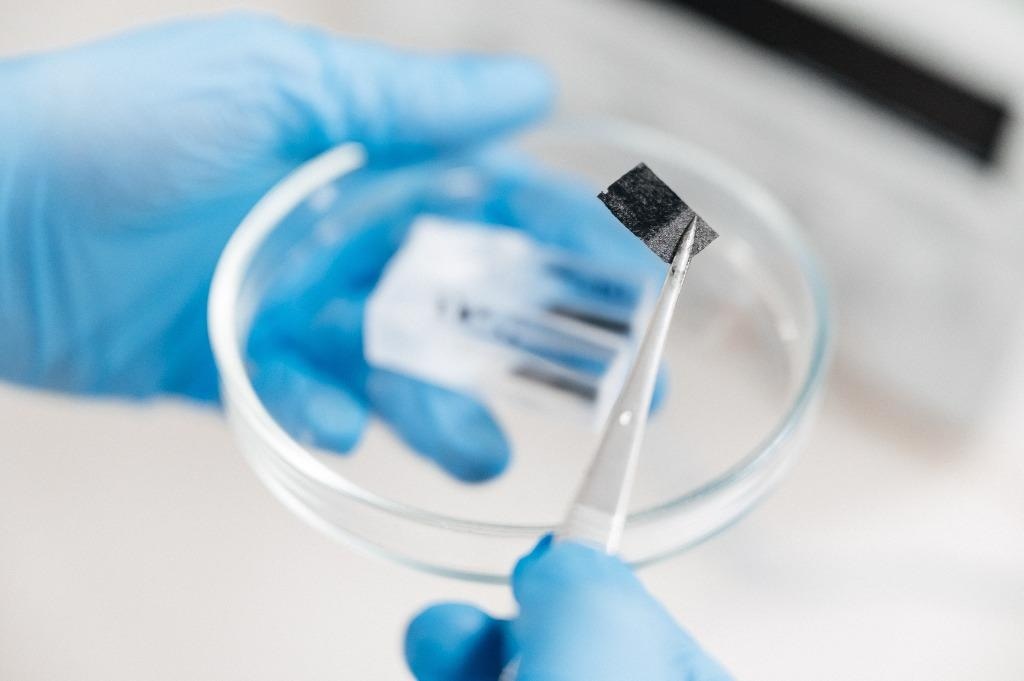Jan 18 2021
Researchers from Tomsk Polytechnic University (TPU) together with collaborators from the University of Lille (Lille, France) have synthesized a new material with reduced graphene oxide (rGO) for energy storage devices and supercapacitors.
 Modified rGO supercapacitor electrodes. Image Credit: Tomsk Polytechnic University.
Modified rGO supercapacitor electrodes. Image Credit: Tomsk Polytechnic University.
The rGO modification technique that involves the use of organic molecules, derivatives of hypervalent iodine, enabled acquiring a material that is capable of storing 1.7 times more electrical energy. The study results were published in the academic journal Electrochimica Acta.
A supercapacitor is an electrochemical device used for storing and discharging electric charge. In contrast to batteries, supercapacitors store and discharge energy multiple times faster and do not include lithium.
A supercapacitor is an element that has two electrodes isolated by an organic or inorganic electrolyte. A material that accumulates electric charge is coated on the electrodes. The latest trend in science is to make use of numerous materials based on graphene, which is one of the most durable and thinnest materials known to mankind. Scientists from TPU and the University of Lille made use of rGO, an abundant and inexpensive material.
Despite their potential, supercapacitors are not wide-spread yet. For further development of the technology, it is required to enhance the efficiency of supercapacitors. One of the key challenges here is to increase the energy capacity.
Pavel Postnikov, Associate Professor and Research Supervisor, Research School of Chemistry and Applied Biomedical Science, Tomsk Polytechnic University
“It can be achieved by expanding the surface area of an energy storage material, rGO in this particular case. We found a simple and quite fast method. We used exceptionally organic molecules under mild conditions and did not use expensive and toxic metals,” added Postnikov.
Powder-form rGO is coated on the electrodes. Consequently, the electrode turns coated with hundreds of nanoscale layers of the substance. The layers have a propensity to agglomerate, namely, to sinter. The interlayer spacing must be higher to extend the materials’ surface area.
For this purpose, we modified rGO with organic molecules, which resulted in the interlayer spacing increase. Insignificant differences in interlayer spacing allowed increasing energy capacity of the material by 1.7 times. That is, 1 g of the new material can store 1.7 times more energy in comparison with a pristine reduced graphene oxide.
Elizaveta Sviridova, Study Author and Junior Research Fellow, Research School of Chemistry and Applied Biomedical Sciences, Tomsk Polytechnic University
The reaction went ahead with the development of active arynes from iodonium salts. They provoke researchers’ interest with their property to form a single layer of new organic groups on surfaces of the material. Scientists from TPU have been developing the chemistry of iodonium salts for several years.
The modification reaction proceeds under mild conditions by simply mixing the solution of iodonium salt with reduced graphene oxide. If we compare it with other methods of reduced graphene oxide functionalization, we have achieved the highest indicators of material energy capacity increase.
Elizaveta Sviridova, Study Author and Junior Research Fellow, Research School of Chemistry and Applied Biomedical Sciences, Tomsk Polytechnic University
The study was carried out with the help of the Russian Science Foundation.
Journal Reference
Sviridova, E., et al. (2020) Aryne cycloaddition reaction as a facile and mild modification method for design of electrode materials for high-performance symmetric supercapacitor. Electrochimica Acta. doi.org/10.1016/j.electacta.2020.137667.